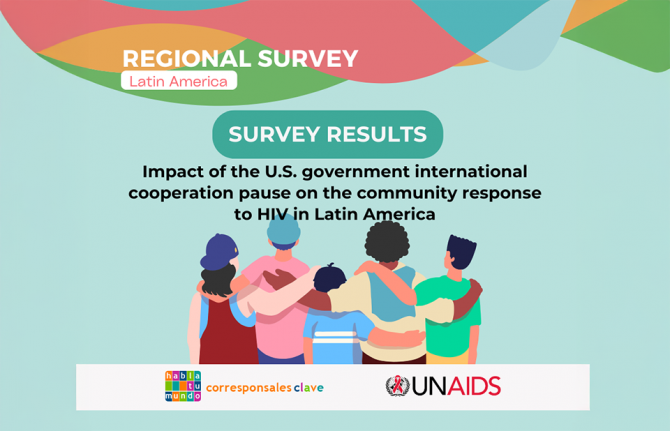
![Sudanese refugees gather as Doctors Without Borders (MSF) teams assist the war wounded from West Darfur, Sudan, in Adre hospital, Chad on June 16, 2023 [Mohammad Ghannam/MSF via Reuters] Sudanese refugees gather as Doctors Without Borders (MSF) teams assist the war wounded from West Darfur, Sudan, in Adre hospital, Chad on June 16, 2023 [Mohammad Ghannam/MSF via Reuters]](/sites/default/files/styles/large/public/sudan_960.jpg?itok=fqyF8jis)
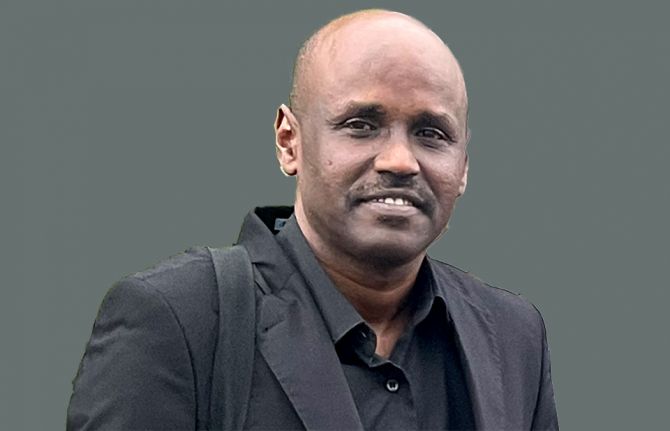
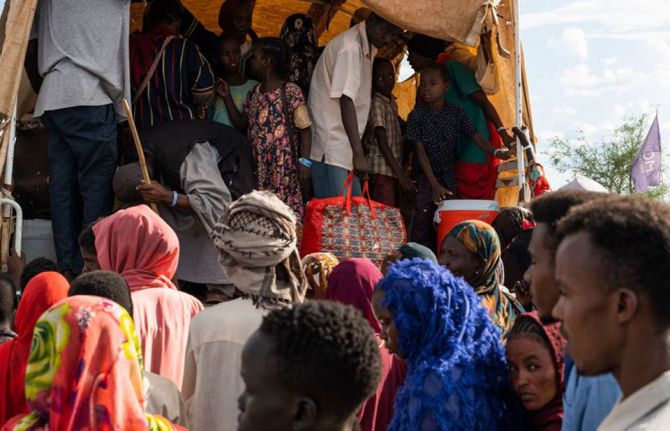
Feature Story
Sudan’s unsung heroes: Protecting people living with and affected by HIV amidst conflict and famine
15 April 2024
15 April 2024 15 April 2024One year ago, on 15 April 2023, armed conflict broke out in Sudan between the Sudanese Armed Forces and the Sudanese Rapid Support Forces. Since then, the situation has worsened. The hostilities, which were initially centred in Khartoum State, have intensified and rendered over half the country inaccessible.
The impact of this conflict has been devastating. Some 8.6 million Sudanese have been forced to flee their homes, 6.8 million are displaced with in the country and 1.8 million have sought refuge in neighbouring countries – Chad, Egypt and South Sudan.
The severity of the humanitarian emergency has been compounded by a deepening famine crisis, with 17.7 million Sudanese facing acute food insecurity, close to 5 million of whom are on the verge of starvation, as reported by OCHA and the Integrated Food Security Phase Classification.
In addition to the humanitarian crisis, the conflict has severely disrupted the healthcare infrastructure. The central depot, which stored all the antiretroviral treatment for people living with HIV in the country is inaccessible and the stock that it holds has since expired.
Before the conflict erupted, 11,000 people living with HIV in Sudan were on HIV treatment, 4000 of whom were lost to follow-up when the war broke out. All HIV prevention and testing services were suspended.
“We are adapting the HIV response in Sudan to the situation in the country. Our priority has been to get anti-retroviral treatment to those who need it, in whatever way we can,” said Elsheikh Ali, UNAIDS Country Director for Sudan.
Despite these challenges, there are unsung heroes who are working tirelessly to ensure that the HIV response continues uninterrupted.
Amidst active war, the displacement of critical partners in the HIV response, poor internet connectivity and communications, sporadic electricity and growing food insecurity, the HIV national response team, with UNAIDS’ support, were able to reconsider, plan and raise resources for this new, national context of the HIV response in the country. The team was able to submit a funding application to the Global Fund to Fight AIDS, TB and Malaria (Global Fund) and to finalize the Global Fund Grant Making process. This secured critical financial support to HIV, TB and Malaria for the next three years. The funds received from previous Global Fund cycles have been used to replace stocks of antiretroviral treatment (ARVs) as well as to establish new HIV treatment storage facilities in safer regions.
During the COVID pandemic, Sudan established a ‘Search and Rescue’ system to track people living with HIV who had their treatment interrupted. Once the conflict in the country escalated, the HIV national response team were able to draw on the ‘Search and Rescue’ system to locate most of the 4000 people living with HIV who were lost to follow-up because of the war and to re-enrol them again to receive HIV treatment services.
“We have heroes here in Sudan, including networks of people living with HIV, who are working in very difficult circumstances, traveling tens of kilometres and risking their safety, to personally deliver ARVs to the people who need it,” said Elsheikh Ali, UNAIDS Country Director, Sudan. “These are the people we should be applauding; they are the ones keeping the HIV response going in the middle of a war and famine.”
The Ministry of Health, whose infrastructure has been significantly disrupted, is trying to provide critical HIV services including treatment and PEP (emergency medicine for HIV taken to prevent the virus in case of potential exposure to the virus) in regions of the country where there is active warfare. In more stable areas, more comprehensive HIV services are now being offered to those who need them.
In the face of the escalating humanitarian crisis in Sudan, there are dedicated people who remain steadfast in their commitment and working selflessly to mitigate the impact of the conflict on the HIV response.
“The HIV national response team exemplify the resilience the AIDS response,” said Anne Githuku-Shongwe, UNAIDS Regional Director Eastern and Southern Africa. “In the face of adversity – war, displacement, famine – and against all odds, they have found a way to continue collaborating to uphold the HIV response.” She adds, “They have completed a successful Global Fund grant in the middle of an active war. They have made sure that people living with HIV across Sudan are not being left behind, that they are found, there is treatment available for them and that they receive it. That is resilience, commitment and leadership.”
Region/country
Related

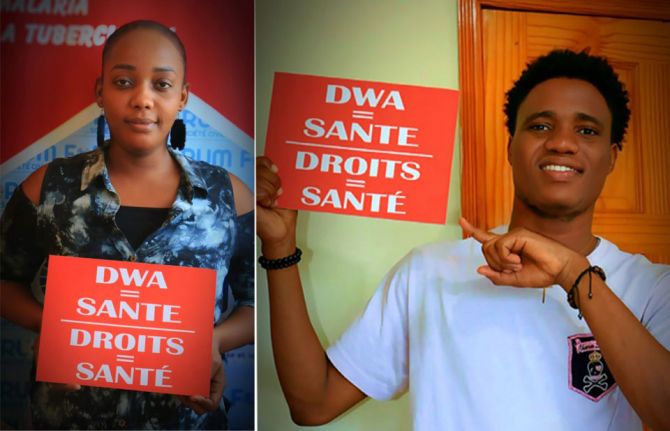
Feature Story
Haiti’s crisis exacerbates vulnerability of people living with and affected by HIV. UNAIDS committed to continuing to provide support to people in need.
27 March 2024
27 March 2024 27 March 2024The humanitarian crisis in Haiti is exacerbating the vulnerability of people living with or affected by HIV, particularly women, girls, and key populations. The situation has deepened existing inequalities, and multiplied the risks faced by marginalised communities. In the face of this adversity, UNAIDS continues to work with partners to ensure that people living with or affected by HIV have access to life-saving HIV services, including treatment and prevention services.
For example, in the West Department, over 50,000 people are receiving antiretroviral treatment and are at high risk of disruption. HIV prevention and health care services also face disruption. The recent violence continues to leave thousands of families traumatized. Thousands of people now find themselves unsafe and exposed to all types of risks. Displaced people and vulnerable populations need emergency aid and safe, protected spaces.
"Communities already at risk of HIV in Haiti have been made even more vulnerable, and people living with HIV are facing greater challenges in accessing treatment and care", said UNAIDS Regional Director for Latin America and the Caribbean, Luisa Cabal. "Together with all the United Nations agencies, and with partners, UNAIDS is advocating for safe and unhindered humanitarian access, and the protection health facilities and health workers."
The situation in Haiti is dire, with over 5.5 million people in need of assistance, including more than three million children. The World Food Programme has noted that around 1.4 million Haitians are "one step away from famine." The UN Humanitarian Coordinator for Haiti has noted that the humanitarian response plan is only six percent funded. Less than half of the health facilities in Port-au-Prince are functioning at their average capacity, and there is a pressing need for safe blood products, anesthetics, and other essential medicines.
In the face of these challenges, UNAIDS and its Cosponsors, together with the United States President's Emergency Plan for AIDS Relief (PEPFAR), the Global Fund to Fight AIDS, Tuberculosis and Malaria, and the Observatory of Civil Society for HIV/TB/Malaria are supporting Haiti’s National AIDS Program.
UNAIDS has been working with the Ministry of Health and Population Unit for Management of Health Emergencies to support HIV treatment delivery. This support includes programmes to provide a broad package of support to affected communities. For example, together with the United Nations High Commissioner for Refugees (UNHCR) and in collaboration with the Organisation de Développement et de Lutte contre la Pauvreté (ODELPA), UNAIDS supports girls and women who are survivors of gender-based violence by training community leaders and granting empowerment funds for women and men's income-generating activities.
"We are working to ensure that people living with HIV have continuity of antiretroviral treatment as well as access to essential needs, especially including the most vulnerable people across the most affected areas," explains Christian Mouala, UNAIDS Country Director for Haiti. "UNAIDS remains committed to not let the humanitarian crisis disrupt the progress that has been made in the HIV response. The United Nations stand together to support the people of Haiti."
Region/country

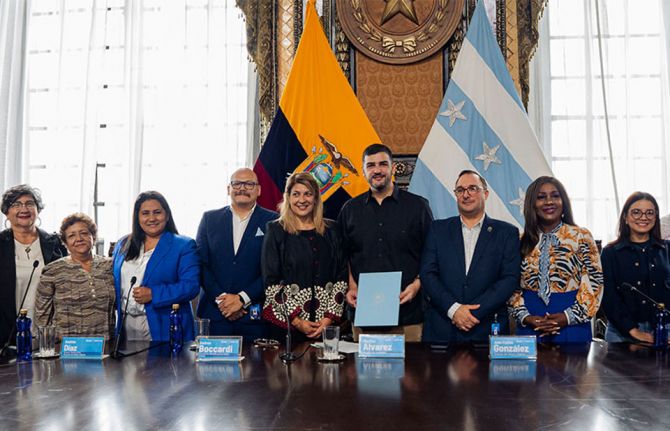
Feature Story
Guayaquil joins the worldwide group of cities committed to ending the HIV epidemic
15 March 2024
15 March 2024 15 March 2024Mayor Aquiles Alvarez Henriques of Guayaquil, Ecuador's largest city and the nation's main port, signed the Paris and Sevilla Declarations on February 28, placing the city among the almost 500 municipalities around the world that are committed to fast-tracking action at local level to improve the quality of life of people living with and affected by HIV. Through this commitment, the city pledges to contribute to the country's goal of ending AIDS as a public health threat by 2030.
Guayaquil is the capital of the province of Guayas, Ecuador's most populated province and the most affected by HIV, with over a third of all new HIV infection notifications in the country, according to the Ministry of Public Health of Ecuador. It has a concentrated epidemic among key populations, with an HIV prevalence of 7.3% among gay men and other men who have sex with men (MSM), for example.
"A significant number of cases reported with HIV in 2023 live in Guayaquil", said Andrés Díaz, Technical Director of the city's Infectious Disease Prevention Unit of the Health and Hygiene Directorate. "We know that the best way to improve HIV prevention is through education and sensitization of citizens so that they can get tested."
Guayaquil has made significant efforts to intensify HIV screening and has increased the detection of HIV-positive cases by 1.6%. Diagnosed people are immediately linked to the public health system to start first-line antiretroviral treatment, which is universally available to nationals and migrants in Ecuador.
Nonetheless, the Health Department of the Guayaquil Municipality has developed a plan with key actions to be implemented as a result of the city’s commitment to the Fast-Track initiative. Some of the most strategic priorities incorporate the scale up of HIV services, including HIV prevention, early diagnosis, and timely treatment of HIV and other sexually transmitted infections; the sensitization of civil servants on issues of stigma, discrimination, and gender-based violence linked to HIV; and facilitate the engagement of communities, specially from key and vulnerable population, in the definition and implementation of HIV programmes at community level.
Representatives of community and civil society organizations such as Corporación Kimirina, the Ecuadorian Coalition of People Living with HIV, and the Silueta X LGBT+ Trans Association attended the event. These organizations play a crucial role in the city's efforts to respond to HIV. "Citizen involvement under the local authority's leadership, with emphasis on the most vulnerable and at-risk community groups, is vital to achieving the goal of ending AIDS by 2030,” emphasized the delegates of Corporacion Kimirina Maria Elena Acosta and Lily Marquez. Similarly, Joan Morales from the Ecuadorian Coalition of People Living with HIV stressed that "By signing the Paris and Sevilla Declarations, Guayaquil joins many other cities that have committed to provide accelerated and sustained health services that allow us to eradicate not only AIDS but also TB, Malaria, and other tropical diseases, with actions that contribute to reducing discrimination towards people living with HIV and other affected communities."
Created in 2014, the Paris Declaration on Fast-Track Cities Ending the HIV Epidemic is a political declaration with commitments and targets that include ending urban AIDS and tuberculosis (TB) epidemics, as well as eliminating viral hepatitis (HBV and HCV). It also articulates a mandate to place people at the center of the response. To define and facilitate that mandate, the Sevilla Declaration on the Centrality of Communities in Urban HIV Responses was created in 2022, outlining the 10 commitments that cities and municipalities are asked to make to increase the engagement of and promote leadership by affected communities in attaining the Fast-Track Cities initiative's goals, objectives, and targets.
"We congratulate the Mayor's Office of Guayaquil for its commitment to contribute to Ecuador’s efforts to reach the 2025 Global AIDS Strategy targets, reducing the number of new HIV infections and AIDS-related deaths and eliminating stigma and discrimination in all its forms,” said Andrea Boccardi Vidarte, Director of the UNAIDS Office for the Andean Countries. "This commitment is also a recognition of the leadership of communities most affected by HIV and their support to the city's goals."
Our work
Region/country

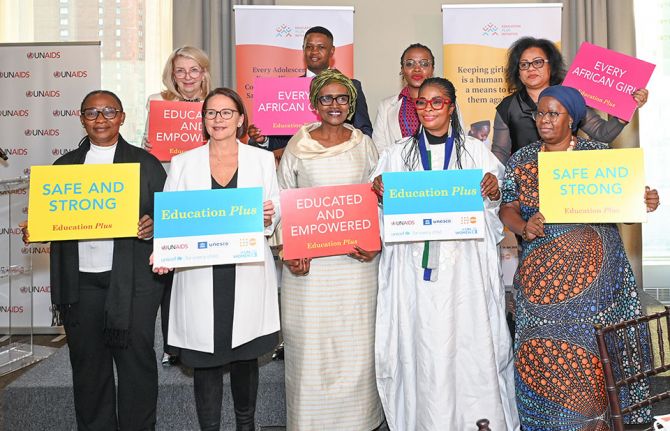
Feature Story
Invest in women and girls’ education and health rights to end AIDS in Africa
11 March 2024
11 March 2024 11 March 2024Despite substantial declines in new HIV infections globally, the HIV/AIDS epidemic continues to disproportionately impact adolescent girls and young women in many countries, particularly in sub-Saharan Africa. In 2022, there were 3,100 new weekly infections among adolescent girls and young women aged 15-24 years. In sub-Saharan Africa, adolescent girls and young women accounted for more than 77% of new infections among people aged 15-24 years in 2022.
That’s why Education Plus Initiative co-hosted with the Grand Duchy of Luxembourg a high-level side event on the margins of the 68th Commission on the Status of Women (CSW68) to bring attention to the cost of inaction, calling for more consistent investment in education, health and economic rights of adolescent girls and young women in Africa. The CSW, which runs from 11- 22 March 2024, is the United Nations largest annual gathering on gender equality and women’s empowerment, with this year’s priority theme, Accelerating the achievement of gender equality and the empowerment of all women and girls by addressing poverty and strengthening institutions and financing with a gender perspective.
Speakers included four ministers from Luxembourg, Benin, Sierra Leone, and Uganda, senior government officials from Cameroon and South Africa, and heads of UN agencies who co-lead Education Plus, ATHENA network. Hannah Dolly Kargbo, a young activist from Freetown, Sierra Leone, and founder of the Girls Advocacy Development Network (GADNET), pre-recorded a video that showed her work with young people to advance rights.
The event, Education Plus investment cases for transformative results: leveraging girls completion of secondary education for gender equality and HIV prevention mobilized government, partners and key stakeholders towards accelerated actions and translate commitments to action for gender equality and HIV prevention in Africa.
The costs of inaction on the rates of HIV in adolescent girls and young women remain significant, not only counted in terms of the harmful impacts on girls’ lives but in how they undermine prospects for poverty eradication and the well-being and resilience of families, communities, societies and national economies. For instance, the lack of educational and economic opportunities that result in women’s diminished labour force participation is estimated to cost the African region US$60 billion in economic losses every year. And yet Africa could gain US$500 billion per year through multi-sectoral investments in adolescents and youth, especially girls, by capitalizing on demographic windows of opportunity.
Education Plus calls for investment in the education and empowerment of adolescent girls and young women, and 15 champion countries are already committed to using education as a means to reduce high HIV rates. Investments that guarantee education for all young people, violence-free school environments, provision of stigma-free health services, comprehensive sexuality education, access to sexual reproductive health and rights services and economic autonomy and empowerment are key to ending AIDS as a public health threat by 2030. When adolescent girls and young women complete secondary school, their risk of getting HIV is reduced significantly.
Quotes
“We must take immediate action to change this situation, get girls back to school and ensure they complete secondary education. This requires commitments made by African member states to address gender inequalities, stigma and discrimination that fuels these infections fulfilled. There is progress in Africa, but it simply isn't fast enough. That's why we have this initiative - Education Plus”
“What I find extremely worrying is the surge in extreme conservative policies on sexual and reproductive health and rights. This is across the world but also in sub-Saharan Africa. We must avoid going back in time. We need to empower girls because it's the only way that we will have women empowered.”
“We can make HIV a disease of the past, but we can't do it without listening to understanding and supporting young girls and women to take the lead. Now is the time to ensure that every girl lives a life free from violence with unhindered access to quality education, to sexual and reproductive health rights and services and with meaningful opportunities to lead a productive life.”
"We know that investing in girls' education and health is an important lever. We can't build our country's development by leaving out 53% of our population"
“Under the radical inclusion policy, we are bringing pregnant girls back to school, retain girls when they become pregnant. So, education and HIV go a long way! When they are educated and have an awareness of HIV, their well-being, and reproductive and sexual rights, they are more assertive when negotiating safer sex.”
“Adolescent girls and young women's organizations are the least funded. Only less than 5% funding of gender equality goes to women's rights organizations, even less goes to young feminist-led organizations. We need to keep the ones who are most affected, most impacted leading the response. We're not here to ask for leadership but to offer leadership to co-lead alongside you.”
"It is now a policy that when constructing a school, you must have sanitary facilities separate for both girls and boys, and girls changing rooms and space. We also have intensified education, communication and advocacy on HIV/AIDS and opened schools to give information on sexual and reproductive health. We are working with girls who have dropped out of school to skill them."
“Girls are unable to live up to their full potential because of barriers, but those barriers are dismantlable. Africa is not poor, but African women and girls are licking a spoon, a spoon they do not even own, so let's shift the discourse so that the resources also available in the countries are prioritized for investing in education, HIV prevention and investing in girls.”
Watch
Our work



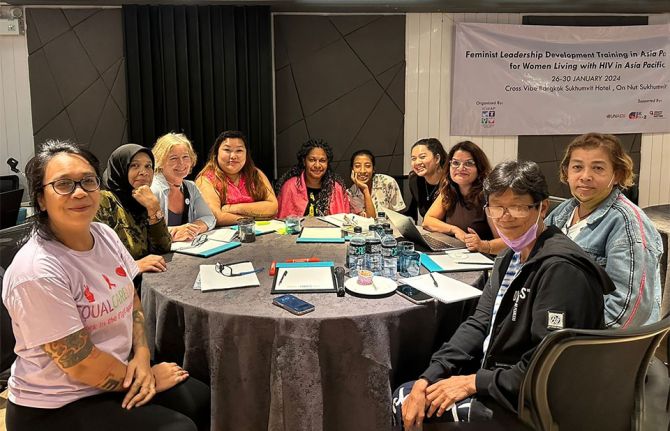
Feature Story
Asia Pacific women living with HIV build their power through Feminist School
08 March 2024
08 March 2024 08 March 2024One-third of people living with HIV in Asia and the Pacific are women. But their issues are often hidden.
Gender-based violence. Restricted economic opportunities. Child marriage. Underage pregnancy. Denial of property rights.
A UNAIDS-supported initiative by the International Community of Women Living with HIV Asia and Pacific (ICWAP) supports positive women’s organising. The Feminist School is a learning and consciousness raising programme that began in South Africa, and has been utilised in Asia-Pacific since 2016. The methodology, anchored in feminist principles, is specifically designed to enable women living with HIV to understand their personal experiences, locate them politically and develop strategies for community-driven advocacy.
“Marching in the month of March is not enough to realize women’s rights,” insists ICWAP Regional Director, Sita Shahi. “We need to speak up on the issue of gender inequality in the HIV response and the need for increased investments in women and girls. Women and girls living with HIV are going through serious human rights violations that, in turn, undermine their right to health.”
The Feminist School brings together women living with HIV, women from key populations, and young women from across the region. In the past two years, with support from UNAIDS, ICWAP has made adaptations to include modules on sexual and reproductive health and rights, movement building, leadership skills and the elimination of mother-to-child transmission (EMTCT).
“Feminist leadership training reveals the challenges faced by women living with HIV in the region. I have gained a lot of knowledge from the cross-country discussions and learned lessons about how women from different countries are breaking down human rights-related barriers, including stigma and discrimination,” said Salina from Malaysia.
Last year, a new module on the Global Fund processes was added.
“We recognized the importance of ensuring that interventions led by women living with HIV are included in Global Fund funding requests,” explained UNAIDS Asia Pacific Regional Adviser for Community-Led Responses, Michela Polesana.
UNAIDS supported a Global Fund Grant Cycle Seven (GC7) project focused on supporting the engagement of networks of women living with HIV in Cambodia, India, Thailand and Viet Nam in the current process. It found that organizations in these countries were at different stages of readiness and involvement. For example, India’s Positive Women Network (PWN+) was already participating in the process and benefitted from ICWAP’s technical support to strengthen their advocacy and organization.
Another UNAIDS-supported strategy ICWAP employed to bolster GC7 engagement was the facilitation of peer-to-peer growth by and for women living with HIV through the roll-out of an online Feminist School training. Through this initiative, country networks were supported in engaging in the Global Fund process and learned about its gender equality strategy, including the gender equality markers (GEM). They also received training to support them in their work to hold governments accountable.
The organization partnered with Ikatan Perempuan Positif Indonesia (IPPI), the Thai Positive Women’s Network, Viet Nam’s Women’s Network, the Association of Positive Women Advocates Inc (APWAI) from the Philippines, Women affected by HIV and AIDS (WABHA) from Papua New Guinea and an informal network of women living with HIV in Cambodia.
The groups identified priority issues for advocacy and recommendations for next steps and devised country-specific advocacy plans.
The advocates agreed on a set of three shared priorities. First, a seat for women living with HIV on each Country Coordinating Mechanism. Second, for positive women networks to reclaim antenatal care activities in prevention of mother-to-child transmission programmes. And finally, for capacity building for young positive women leaders.
Feminist school is helping women living with HIV to organize to secure their human rights. To protect women’s health it is vital to protect women’s rights. And to protect women’s rights it is vital to support women’s leadership.
“This is all about bridging the gap between outgoing leaders and an incoming, new generation,” Ms. Shahi said.
Region/country
- Asia and Pacific
- Australia
- Bangladesh
- Bhutan
- Brunei Darussalam
- Cambodia
- China
- Democratic People's Republic of Korea
- Federated States of Micronesia
- Fiji
- India
- Indonesia
- Islamic Republic of Iran
- Japan
- Kiribati
- Lao People's Democratic Republic
- Malaysia
- Maldives
- Marshall Islands
- Mongolia
- Myanmar
- Nauru
- Nepal
- New Zealand
- Pakistan
- Palau
- Papua New Guinea
- Philippines
- Republic of Korea
- Singapore
- Solomon Islands
- Sri Lanka
- Thailand
- Timor-Leste
- Tonga
- Tuvalu
- Vanuatu
- Viet Nam
- Samoa

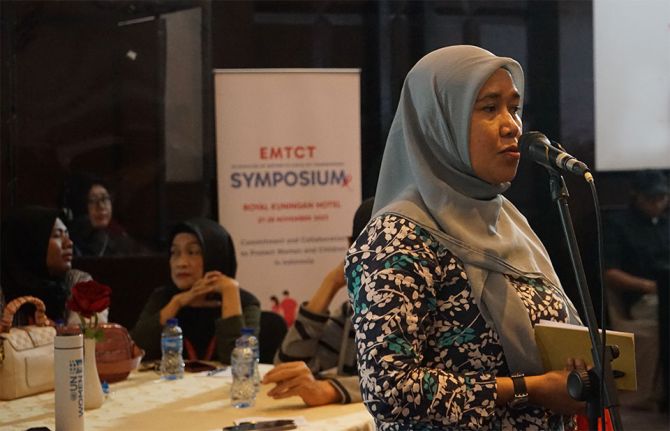
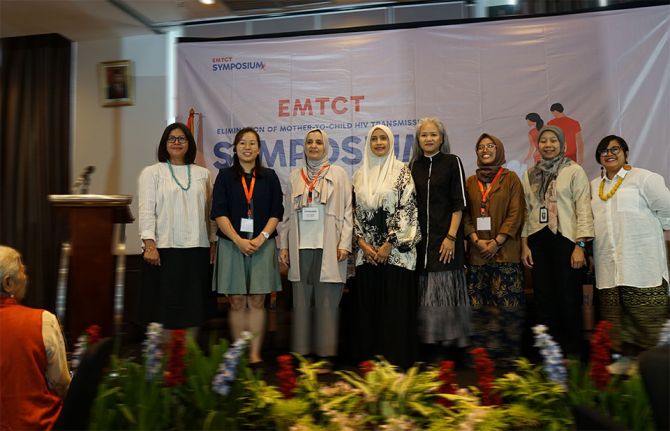
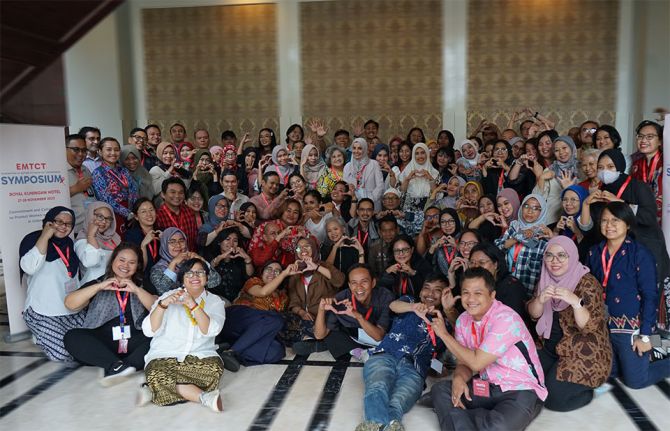
Feature Story
Community leadership driving progress to eliminate mother-to-child HIV transmission in Indonesia
07 March 2024
07 March 2024 07 March 2024Ibu Mawar (not her real name) learned she was living with HIV after receiving a test during an antenatal care visit.
“I was surprised, of course, when they told me. But I didn’t really doubt or deny the result,” she remembered from the Sorong City Health Office in West Papua. She immediately started treatment to prevent transmission to her son. “Even though I’m positive,” she said, “our child is not.”
In principle, since 2009 every pregnant woman receiving antenatal care in Indonesia should receive an HIV test. And every woman found to be living with HIV should receive medicines to prevent transmission to their babies just as Ms Mawar did.
But this isn’t yet the reality.
In 2022 more than one-third (37%) of all pregnant women in Indonesia did not get screened for HIV and just 18% of mothers living with HIV had access to antiretroviral therapy. There were an estimated 2800 new HIV infections among children that year.
But now stakeholders in Indonesia are mobilising. Not only will they scale-up prevention of mother-to-child HIV transmission services, but they will work toward eliminating vertical HIV transmission while assuring the health and wellbeing of women and children living with HIV. At the centre of this approach is the engagement of women, who comprise roughly one-third of the adult population living with HIV.
In June 2023 Indonesia established the National Alliance to End AIDS in Children. This partnership between government, civil society and international organizations seeks to provide access to health services and support for women and children living with HIV. It has committed to three main priorities. The first is advocacy for the needs of adolescent girls and children living with HIV. Second is promotion and dissemination of information on Prevention of Mother-to-Child Transmission (PMTCT), Early Infant Diagnosis, treatment literacy and comprehensive sexual education. And third is the empowerment of communities regarding issues pertaining to children living with HIV.
The Alliance’s first major initiative was an Elimination of Mother-to-child Transmission symposium—the first ever in Indonesia. Partners have embraced the World Health Organization (WHO) triple target of eliminating mother-to-child transmission of HIV, syphilis and hepatitis B by 2030. A series of sessions were delivered in-person and online. A total of 115 participants from the government, communities, academia, healthcare and media joined the EMTCT Symposium in Jakarta.
Dr. Laila Mahmudah, Head of the Neo Maternal Division at the Ministry of Health, underlined the importance of accelerating EMTCT efforts across the range of issues. She noted that currently 66% of pregnant women received hepatitis B early detection services while just 25% of pregnant women are tested for syphilis.
Multisectoral stakeholders and participants discussed strategies with participants from Malaysia and Thailand, which have both received EMTCT validation for HIV. Dr Anita Suleiman, Director of Disease Control of the Ministry of Health of Malaysia, pointed to the importance of effective leadership and health system governance for country-wide implementation.
“One of the lessons from countries that achieved EMTCT is that it is possible to end AIDS and vertical transmissions, especially in low-prevalence regions like Indonesia, through robust governance and good-quality performance. Indonesia can also achieve EMTCT by 2030, and I hope this symposium leverages the coordination efforts towards the elimination of HIV, syphilis and hepatitis B,” said Dr Shafflq Essajee, Senior Advisor, HIV, UNICEF New York.
However, it was emphasised that political commitment must be bolstered by community-led strategies to reach and retain mothers living with HIV. Community mobilization and community health workers are critical approaches. Ikatan Perempuan Positif Indonesia (IPPI), the national network of women living with HIV, also endorsed the Thai approach of providing free formula for mothers living with HIV in low-resource districts.
Ayu Oktariani, IPPI National Coordinator and a member of the National Alliance to End AIDS in Children reiterated her organization’s commitment to implementing the community-led strategies in support of EMTCT in the coming years.
“This Symposium means more than words I can explain,” said Ayu Raka from the Akar Cinta Kasih Foundation, a community organisation in Bali. “When I return to Bali, I will advocate for EMTCT with local multisectoral stakeholders and communities in my region. I am confident we can make a healthier society and improve health for all mothers and babies.”
UNAIDS Country Director for Indonesia, Krittayawan Boonto, promised the continuous backing of UNAIDS.
“We will continue to support not only mothers, but also fathers, in protecting babies from new HIV infections. I wish for Indonesia to become the fifth country in Asia Pacific to achieve EMTCT. But we can only do it with the leadership of communities,” she ended.
Region/country

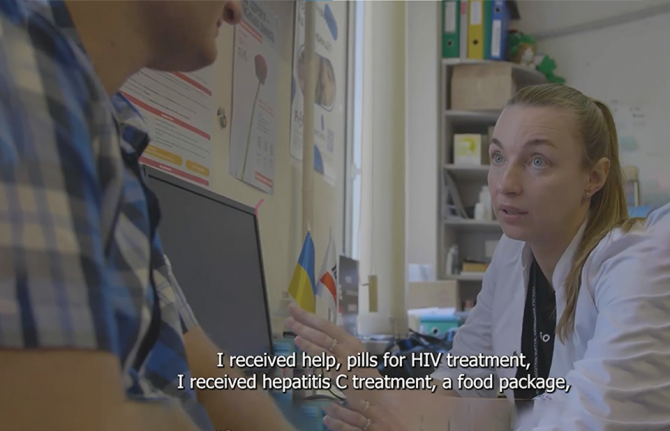
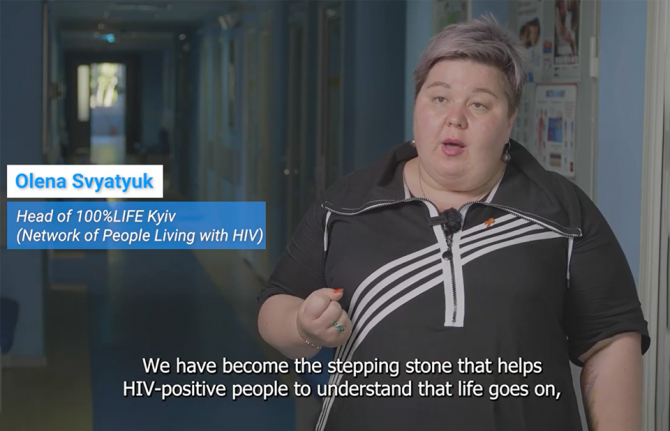

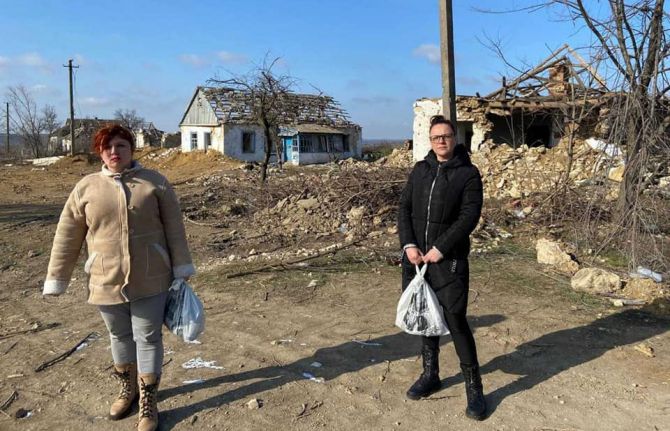
Feature Story
Two years on: UNAIDS supports Ukraine’s commitment to the HIV response
23 February 2024
23 February 2024 23 February 2024Two years of war in Ukraine have resulted in significant humanitarian consequences. Forty percent of the current population of Ukraine,14.6 million people, are in need of humanitarian assistance, 6.4 million refugees have fled the country, and more than 3 million people are internally displaced. People living with and affected by HIV continue to be vulnerable to the effects of the war, even as HIV services have been restored and are functional in most parts of the country.
Russian strikes have continued to wreak havoc on Ukrainian cities, causing death and destruction, impacting access to water, electricity, heating, and health services for millions of civilians.
In addition, there have been 1,570 attacks on health facilities and 630 health facilities damaged.
According to the latest data from The Ukrainian Public Health Center, prior to the war, Ukraine had made significant progress in reducing HIV incidence (-47%) and AIDS-related mortality (-81%) since 2010. Despite the initial disruption to the national AIDS response at the onset of the war, the national AIDS program has gradually resumed routine operations.
As of the end of 2023, the number of patients on antiretroviral therapy (ART) was only slightly below the pre-war figure, standing at 118,348 (130,724 as of February 2022). Additionally, approximately seven thousand patients are known to receive ART abroad. In the last two years, the number of patients on opioid agonist therapy (OAT) increased by 38%, reaching 27,511 people. Pre-exposure prophylaxis (PrEP) more than doubled, reaching 12,354 people.
However, in eastern and southern occupied territories data is incomplete or not available. This is true of Donetsk, Luhansk, Zaporizhzhia, Kherson regions, AR Crimea, and the city of Sevastopol. The same occurred in 2023. Despite these challenges, the surveillance system in the government-controlled areas remains operational, ensuring the completeness and quality of data on HIV prevention, testing and treatment services.
In addition, 9.6 million people in Ukraine are estimated to be at risk of or living with a mental health condition, and 3.9 million people are estimated to suffer from moderate to severe symptoms. And there has been an increase in gender-based violence.
Ukraine remains committed to the HIV response through a strong coalition of government, civil society, international organizations, and donors, first and foremost The United States President's Emergency Plan for AIDS Relief (PEPFAR) and The Global Fund to Fight AIDS, Tuberculosis, and Malaria. This collaboration has secured vital supplies of antiretroviral therapy (ARV), tuberculosis medicines, and opioid agonist therapy (OAT), ensuring uninterrupted HIV treatment and services.
UNAIDS Secretariat, Co-sponsors and UN agencies have joined forces to provide a unified response, ensuring that vulnerable populations, including those on the frontline and in the most severely affected areas, receive comprehensive support. This collaborative effort aims to bridge gaps and address the unique challenges faced by women, people living with HIV and key populations, including the delivery of crucial humanitarian aid and HIV services.
The past two years have been very challenging. Even though the country has managed to maintain HIV services, the unpredictability of what lies ahead has many fearing the worst. Support is needed to ensure sustainability of the AIDS response and to protect key populations affected by the enduring hardships of war.
For more information and more in-depth analysis, read the Situation Report (February 2024)
Watch
Situation Report
War in Ukraine and the HIV response
Region/country
Related

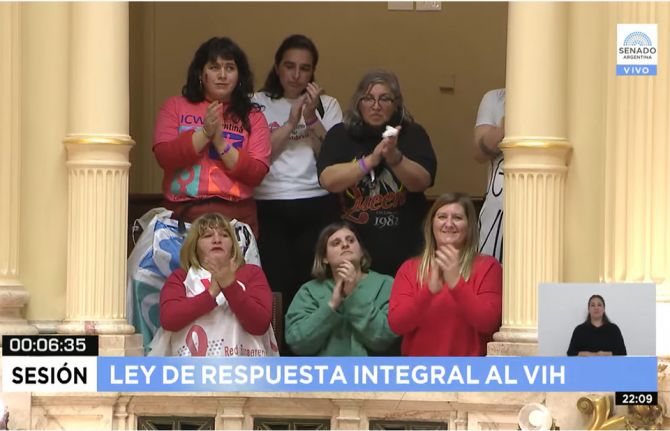

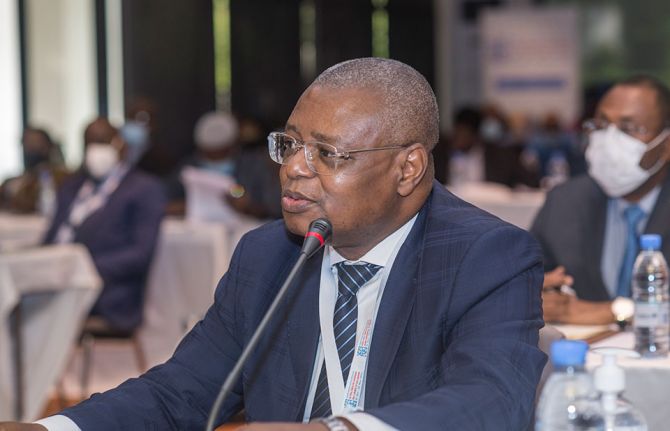
Feature Story
Countries take practical steps forward towards eliminating discrimination
09 February 2024
09 February 2024 09 February 2024Countries from across the world who have taken practical steps forward towards eliminating discrimination are showing what is possible, UNAIDS has said.
The countries are members of the Global Partnership for Action to Eliminate all Forms of HIV-Related Stigma and Discrimination, which have prioritized and pledged to accelerate the removal of stigmatizing and discriminatory practices, policies and laws across six settings: community, health, justice, education, workplace, and emergency/humanitarian. Recent progress that was made by members of the Global Partnership included:
- In the Central African Republic, the law on the rights of people living with HIV/AIDS was revised with a focus on social protection, opening new opportunities for people living with HIV to access enhanced support.
- In Argentina, the National Law for Comprehensive Response to HIV, STIs and Tuberculosis committed that care and treatment be provided without discrimination.
- In Kazakhstan, the government increased domestic funding to sustain a successful community-led programme for shelter and support for women living with HIV who had been subjected to violence.
- In Ghana, a strong partnership between the government and the community enabled mothers living with HIV and caregivers of HIV-exposed infants and children to benefit from targeted interventions that foster their and their children’s well-being, leading to improved adherence to treatment and linkage to care.
- In Thailand, a national Code of Conduct on HIV prevention and management in the workplace was adopted, and both government and the private sector committed to review HIV policies in line with the new Code of Conduct.
- In Iran, the Ministry of Health issued a bylaw to tackle the stigma and discrimination faced by people living with and affected by HIV. As a result, a protocol on elimination of stigma and discrimination in health care settings was developed to advance access to HIV services without discrimination, including strengthening the referral system.
“The practical steps forward which have been taken by members of the Global Partnership provide hope through action,” said UNAIDS Executive Director Winnie Byanyima. “They show what is possible. They show how it is through protecting the rights of every person that we can protect the health of every person. Progress on rights can power progress towards the end of AIDS.”
38 countries have joined the Global Partnership for Action to Eliminate all Forms of HIV-Related Stigma and Discrimination, and more have expressed interest in joining. More information on the Global Partnership can be found here: https://www.unaids.org/en/topic/global-partnership-discrimination
On March 1st the world will mark the tenth anniversary of Zero Discrimination Day. More information on Zero Discrimination Day can be found here: https://www.unaids.org/en/2024-zero-discrimination-day
Related

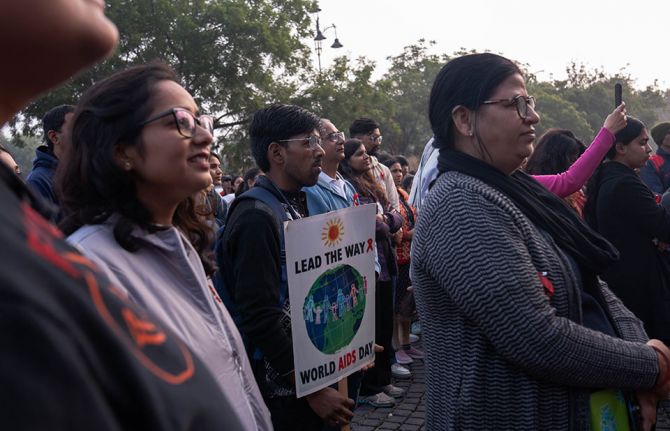

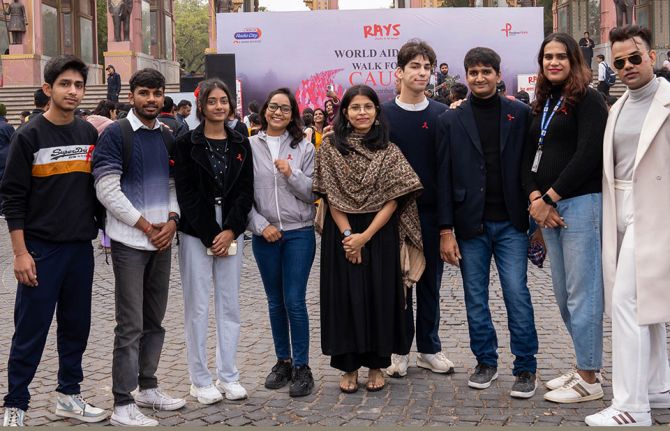
Feature Story
Young people’s inspirational leadership role in India’s HIV response
06 February 2024
06 February 2024 06 February 2024Divyanshi is an enthusiastic 18-year-old Indian girl with an inspiring personal story of courage and resilience. She was diagnosed with HIV at a very young age. She has never given up on her dreams.
“I became aware of my status around 2013-14 but it wasn’t until I moved to a care home that I understood the challenges of living with this virus,” said Divyanshi. “As a person living with HIV, I face stigma and discrimination when a friend or someone else gets to know about my positive status. But I take it as an opportunity to educate people about HIV and break their myths. I want to show the world that I can live a normal, healthy, and happy life as a person living with HIV.”
Divyanshi joined the Positive YUVA Network (PYN)—an innovative community-based organisation striving to uplift young people living with HIV—where she found support and guidance from her peers.
As a network of young people living with HIV, Positive YUVA Network is a community-based organization committed to support young people living with HIV and LGBTQI+ people in India. The organization focuses its efforts on supporting the mental health of the young people living with HIV through its “Buddy System”. This initiative acknowledges the psychological challenges experienced by young people living with HIV and supports them with professional counsellors who provide tailored assistance.
The organization provides skills development opportunities, recognizing that empowering young people living with HIV with practical skills enhances their socio-economic prospects. Through mentorship programs, the Positive YUVA Network aims to instil confidence and self-reliance among the youth, helping young people to redefine their narrative.
At the Positive YUVA Network, Divyanshi discovered her passion for photography and with the help of her mentor, is now interning at a startup, capturing moments of joy and hope. Divyanshi is an inspiration to many in how she shows that no obstacle can deter her from chasing her aspirations.
The Positive YUVA Network also works to reduce stigma and discrimination associated with HIV by raising awareness in schools. For instance, the organization used the most recent World AIDS Day as an opportunity to initiate open discussions and correct myths about HIV and AIDS among school going children with a goal to create a supportive and inclusive environment that fosters understanding and empathy for all people. By fostering empathy and a respect for the rights of everyone, the initiative helps to advance the health of everyone.
Global HIV statistics reveal that 1 out of every 4 new HIV infections globally in 2022 were among young people (15–24 years). Recognizing this demographic vulnerability, a focus on youth-specific interventions is imperative for an effective HIV response.
This community-driven initiative, and many others like this one, is playing a critical role in removing barriers for young people to meaningfully engage in the HIV-response in India. It is a powerful example of how community-led organisations are transforming the AIDS response at grassroots level.
“In India's HIV response, youth-led organizations infuse hope and resilience. These groups, driven by the energy and innovation of young minds, are building a more inclusive and informed society. Rights, recognition and respect are essential for public health efforts to succeed. The impact of organisations like the Positive YUVA Network is not limited to young people living with HIV and LGBTQ+ youth, it benefits everyone,” said David Bridger, UNAIDS Country Director in India. “We all need to recognize the indomitable spirit of these organizations—pillars of strength in our collective journey. Together, let us do all we can to support the vital role of youth-led initiatives as they lead us along the path that ends AIDS,” he added.
Our work
Region/country

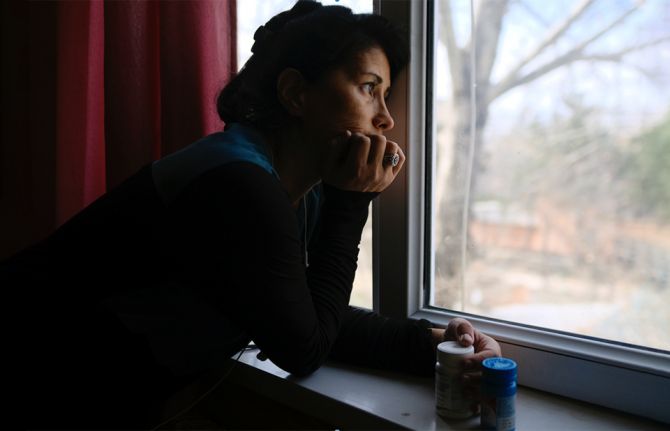
Feature Story
Tajikistan takes a positive step towards decriminalization of HIV exposure and transmission
30 January 2024
30 January 2024 30 January 2024In an important decision of the Plenum of the Supreme Court on December 26, 2023, Tajikistan has marked a significant step towards decriminalization of HIV exposure and transmission in its pursuit of justice for people living with or affected by HIV.
Through a new resolution, the courts are asked to examine more objectively issues related to criminal liability for HIV exposure and transmission under Article 125 of the Criminal Code. The resolution obliges judicial practice to be based on new norms that take into account international standards and recommendations including the Undetectable = Untransmittable concept endorsed by UNAIDS and WHO which asserts that people who are living with HIV who are on antiretroviral treatment and have an undetectable viral load cannot transmit HIV.
Article 125 of the Criminal Code currently criminalizes HIV transmission and exposure with a penalty of up to two years’ imprisonment (Part 1), while transmission by someone aware of their status is penalized with two to five years’ imprisonment (Part 2), increased to five to ten years’ when committed against multiple people or a minor (Part 3).
In some cases, decisions were made solely based on a person’s HIV-positive status, criminalizing people living with HIV rather than ensuring access to HIV services, treatment and support.
More than 70% of people convicted under Article 125 have been women living with HIV. Women living with HIV may be subjected to domestic violence, stigma, and discrimination and do not seek justice in courts, due to the fear of accidental disclose of their HIV status and further criminal prosecution.
“This new resolution is encouraging because it allows for more fair interpretation of existing laws (which is very important) but it does not establish new laws or change the Criminal Code which still criminalizes HIV exposure and transmission. Therefore, it is important to continue advocacy to change the Criminal Code and decriminalize HIV transmission and exposure.” said Tahmina Haidarova, Head of the Network of Women Living with HIV in Tajikistan.
The new move towards a more just legal framework has been the result of collaborative efforts of the Supreme Court and civil society organizations, as well as long-term advocacy of UNAIDS, UNDP, and the Global Fund to fight AIDS, TB and Malaria that reflects a holistic and inclusive approach to addressing the complexities of HIV-related legal matters.
The consequences of a punitive approach, where law enforcement takes precedence over medical professionals, has contributed to the growth of the HIV epidemic in Tajikistan - the number of new HIV infections has increased by 20% over the past 10 years. The percentage of new HIV cases among women has also grown - from 31% in 2011 to 36% in 2022.
International partners, including UNAIDS, UNDP, and the Global Fund, echo the call to repeal laws criminalizing HIV. The negative impact of such legislation on HIV testing rates and adherence to treatment cannot be overstated. An evidence-based approach is crucial for fostering a healthier society.
“Tajikistan's move towards HIV decriminalization marks a positive step towards commitment to justice, inclusivity, and public health,” said Eamonn Murphy, UNAIDS Regional Director for Asia-Pacific and Eastern Europe and Central Asia. “This journey is guided by the principles of compassion, cooperation, and evidence-based policymaking. UNAIDS, together with partners, welcomes the efforts of the Supreme Court to reduce prosecution and humanize the judicial system. UNAIDS will continue to support the country in its journey to fulfil the human rights of all people living with HIV.”









